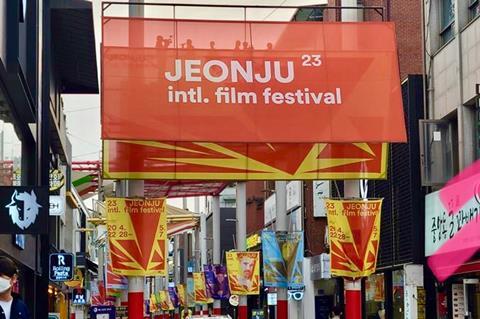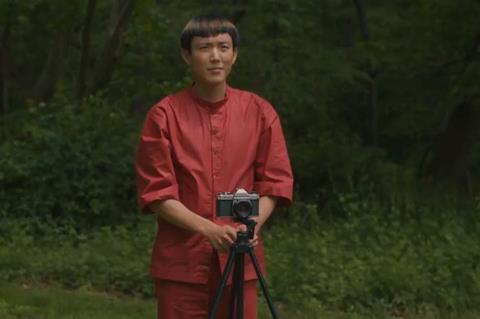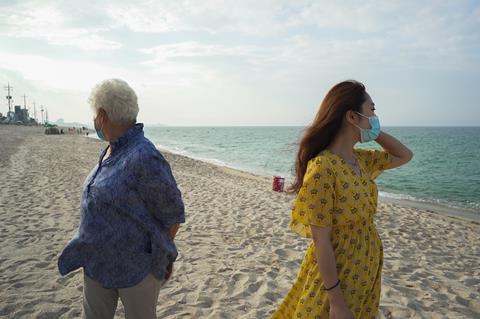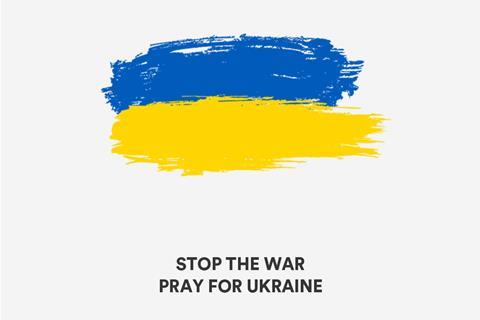
South Korea’s Jeonju International Film Festival was one of the first to take place following the Covid-19 lockdowns of 2020, proving that such an event could be held safely with closed-door screenings for jury and filmmakers and online screenings for the public. After holding a hybrid edition with socially distanced audiences last year, Jeonju is back as a fully-fledged physical event this year.
“We accumulated a lot of know-how last year holding the on-and-offline event,” says festival chairman and Jeonju mayor Kim Seung-su. “We created a manual and have medical and government officials observing. We have a strong determination to hold an offline event but safety is the most important thing and so we will proceed with our meticulous manual so that film fans will have no problem.”
The festival will retain an online component to suit these OTT-habituated times and accommodate those who cannot attend or stay in Jeonju for the entire festival but it has invited more than 2,000 domestic and 60 overseas guests – a similar level to pre-pandemic numbers.
In South Korea, 86.8% of the population has now received two doses of a vaccine and 64.4% has had a third shot. Meanwhile, overseas guests are asked for proof of vaccination and conduct testing both shortly before and on entry to the country. Wearing masks in public including during screenings is mandatory. The festival has designated seating and the now-familiar hand sanitizer stations, while no food or drinks aside from non-alcoholic beverages are allowed in screenings.

Attendees include actor Justin H. Min, who plays the titular android character in Kogonada’s opening film After Yang, having previously screened at Cannes and Sundance; honorary programmer of the year Yeon Sang-ho, director of films such as zombie thriller Train To Busan and the breakout Netflix series Hellbound; recently-revealed secret surprise guest Kiyoshi Kurosawa, whose 1997 film Cure is in Yeon’s selection and who will be the subject of an after-screening talk; Burning director Lee Chang-dong, who will be the focus of a special showcase; and master director Im Kwon-taek who has films such as Chihwaseon in a retrospective for Taehung Pictures.
The festival has a strong focus on “the discovery and introduction of independent, alternative and art films” and boasts the Jeonju Cinema Project (JCP), an initiative to fund, produce and promote feature films that the festival selects at project stage.
Located in the southwest of the Republic of Korea, Jeonju is known for its traditional Hanok Village with its arts and crafts as well as its renowned cuisine. During its 10-day run, the festival centres around Jeonju Film Street venues with five cinemas and a total of 19 screens, with the opening and closing ceremonies held at the nearby Jeonju Dome. The Jeonju Project industry programme runs May 1-3 at the nearby Lahan Hotel.
This year, the festival will screen 217 films from 57 countries and includes 61 world premieres, four international and 63 Asian premieres. Jeonju will hold its awards ceremony on May 4 and closing ceremony on May 7 with French drama Full Time, winner of Venice Orizzonti’s best director for Eric Gravel and best actress for Laure Calamy last September.
Jeonju Cinema Project
Going into its ninth year, JCP has produced 27 feature films to date, a rare case in which a film festival directly invests in, produces and distributes films.
“As a programme to invigorate and promote low-budget independent films, the international results have been very good,” says programmer Sung Moon, who handles the initiative. “For instance, Damien Manivel’s Isadora’s Children went to Locarno Competition and was released in France, while Korean director Kim Dae-hwan’s First Lap won best screenplay at the Mar del Plata film festival. (Kim also won the best emerging director award at Locarno in 2017.)
“The JCP films have also been steadily released theatrically in Korea and we have a lot of interest and inquiries from international filmmakers. I think the awareness of the programme has definitely accumulated.”

Originally selected on the condition they make their world premieres in Jeonju, some of the films have been given leniency due to the pandemic. This year, two features will make their world premieres at Jeonju – Alan Martin Segal’s Argentina-Korea co-production Via Negativa and Park Hyuckjee’s Korean shaman film Girl Who Dreams About Time, while a further two had their world premieres in Berlin earlier this year and will receive their Asian premieres at Jeonju – Dane Komljen’s Afterwater and Eric Baudelaire’s A Flower In The Mouth.
Korean Competition
“This year’s Korean Competition had a record number of submissions and of the final nine films in Korean Competition, seven are from women directors,” says programmer Moon Seok. “Also, Jeonju has usually had many socially critical films but this year we’re seeing a lot of films about love and family. The focus has gone from the external to the internal, possibly because of the coronavirus pandemic.”
World premieres of such films include Korea-France co-production Archaeology Of Love, directed by Lee Wanmin as her second film, and director Kim Jung-eun’s Mother And Daughter.
International Competition
This year, six out of 10 directors in Jeonju’s International Competition are women, matching last year’s tally. “It just turned out that way,” says programmer Chun Jinsu, adding that the quantity and quality of submissions he saw this year increased from the first two years of the pandemic, especially from East Asia.
“We have such a diversity of directors from various countries with diverse points of view. The International Competition is for first and second films so in general, we get young directors’ films. They tend to be the kind of films that are courageous and have new points of view that we want to discover, support and cheer on through the International Competition,” he says.
International premieres in this section include Zhan Kai-di’s Taiwanese family film Raydio, Hyuga Fumiari’s Japanese documentary Tokyo Kurds and Anders Emblem’s Norwegian drama A Human Position.
Special programmes
As this year’s guest programmer, Yeon chose three films that influence him and will be shown side by side with two of his own films - The King Of Pigs (2011) and Train To Busan (2016). The films he wanted to see on the big screen are David Lynch’s Blue Velvet (1986), Kiyoshi Kurosawa’s Cure (1997) and Shinzo Katayama’s Missing (2021).
Other special programmes include films inspired by Czech writer Milan Kundera and an homage to Shin Su-won and Korean women directors.

The festival is also planning a raft of events, the most serious of which might be Ukraine Day on April 29, to show support for the embattled country in the face of Russian invasion. Directors of international film festivals in Korea are set to make an announcement that day, accompanied by screenings of Ukrainian films.
Never one to shy away from political controversy whether in or outside its screenings, Jeonju film festival was previously vocal in its support of the Busan film festival and freedom of speech during ex-president Park Geun-hye’s administration and the infamous blacklisting that contributed to her impeachment. It was also one of the first to voice support for democracy in Myanmar last year; the first Korean festival to voice support for Ukraine; and has decided to screen Russian films only on the condition that the directors make a statement of support for Ukraine.
They ended up with one film being pulled and a single Russia-Netherlands co-production, Detours, in the Expanded Cinema section. Director Ekaterina Selenkina has recorded a video that will screen ahead of her experimental film, which is set to receive its Asian premiere at Jeonju.






![The Brightest SunScreen[Courtesy HKIFF]](https://d1nslcd7m2225b.cloudfront.net/Pictures/274x183/3/5/0/1448350_thebrightestsunscreencourtesyhkiff_312678.jpg)


















No comments yet